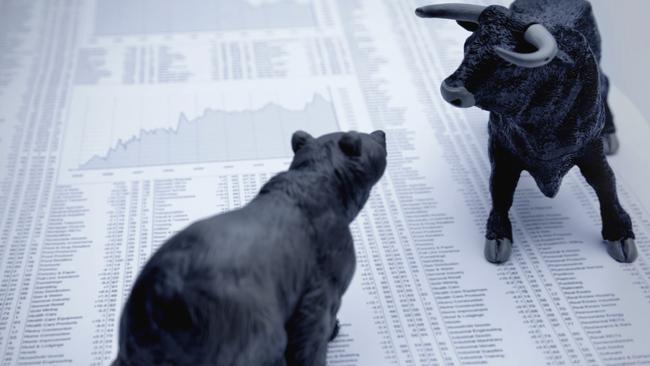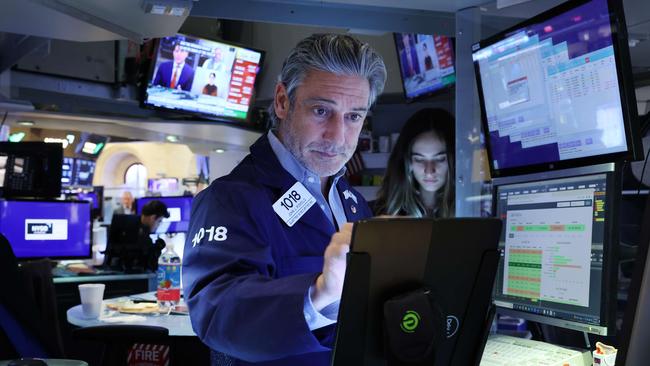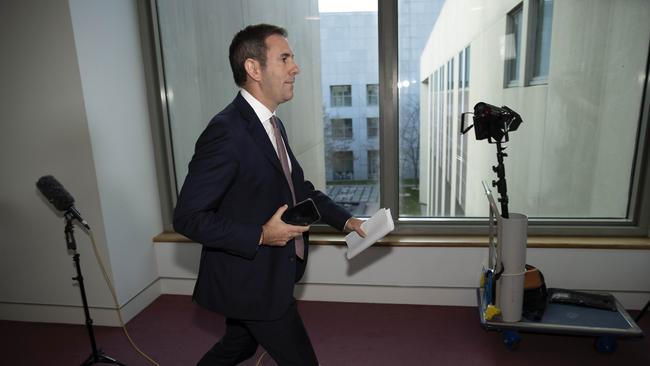
Sitting below the surface of this fairly plain sounding security is the riskiest of corporate debt, and most of it is based in the US. In fact barely any of the $760m fund is allocated to anything carrying an investment grade rating. In other words, it is stuffed to the gills with junk bonds and some pretty hot ones too.

A third of the KKR Credit Income portfolio is sitting on bonds rated by S&P as ‘‘CCC’’ or just one notch above a rating where a default event is regarded as a “virtual certainty”.
With deep financial stress building after the interest rate rises this century, the KKR Credit fund should be flashing bright red. However, the number of defaults the fund has seen so far is zero.
In six months time it is likely to be a very different story, and that’s why its shares are down 16 per cent this year.
Still, speak to any bank boss and they will talk of almost no signs of stress in their weekly numbers. Listed mortgage funds are showing less signs of stress than pre-Covid-19 times, with new loans – often regarded as the most vulnerable – still performing. Australians are drawing on savings, but they continue to spend, with retail sales defying expectations.
Later this week new retail figures for August will be released, with economists expecting consumption to rise at least 0.5 per cent. Credit numbers this week show that despite surging interest rates here and threats of more to come, people are still borrowing for housing. Both of these, combined with near record low unemployment, are the ultimate test of confidence.
This shows the extraordinarily complex environment investors face, even as Australian shares staged another sharp fall, with the S&P/ASX 200 closing down 1.6 per cent on Monday.
Investment markets are forward-looking, and the resilience in the real world shows the shock of fast rising interest rates and soaring inflation hasn’t yet been fully absorbed by households.
A week from now the Reserve Bank is expected to hike rates by as much as 50 basis points, taking the official cash rate to 2.75 per cent – the highest level in nine years.
Recession fears
In anticipation of a slowing domestic and global economy, the benchmark S&P/ASX 200 is down a whopping 6.8 per cent this month and off more than 14.5 per cent this calendar year, which is past a correction and now pushing into bear market territory.
Fund managers rule off their quarterly performance on Friday and are facing another quarter of steep losses. Bond markets are pricing in recession and the thing that’s been providing a buffer for Australia – high commodity prices – is now starting to crack on fears that China is on a knife-edge.
Andrew Clifford, the head of the $18bn value fund Platinum Asset Management, is warning of a “deep bear market” with further heavy losses to come on international shares. “We would not be surprised to see a fall in the order of 50 per cent from the top of the market,” Clifford says.
The broad US share benchmark, the S&P 500, is down 23 per cent from its peak, which means on Clifford’s estimation there is clearly more pain to come. A loss of this magnitude would be similar to what happened to global equity markets during the dot.com crash of 2000 and the Global Financial Crisis.

These falls have come about amid substantial changes in global financial conditions – with expectations of a recession in the US and Europe next year, and a rapidly slowing China could also tip into recession. Add to that the squeeze on supply chains from the Russia-Ukraine war and this complicates what is already a fragile time for the global economy.
Clifford says coming through the Covid period was one of history’s most impressive bull markets. “With central banks now being forced to increase interest rates and, at least in the US, start winding back quantitative easing, financial conditions have changed dramatically, even as government spending has been cut,” he says.
“Today’s financial conditions represent a significant headwind for global stockmarkets as well as other asset prices, in contrast to the tailwinds that have been present for much of the last decade, and especially since the arrival of Covid-19.
“Ultimately, the depth of bear markets tends to be a function of the strength of the bull market that preceded it.”
Fund manager Robert Gregory of Glenmore Asset Management says investors are caught in the eye of the storm with the full impact of rate hikes yet to hit.
“Over the last month it’s starting to become clear that central banks need to do more heavy lifting in terms of interest rate hikes to bring inflation down to acceptable levels,” Gregory says, adding that it’s fear about the impending economic slowdown that’s behind the current bearishness.
Gregory’s message to investors is don’t move too early in picking up falling stocks as markets absorb higher rates over six to 12 months. Then there is the impact or the lag effect in how the higher rates are hitting company earnings.
The Glenmore boss also points out that over this period different stocks are likely to become “cheap at different times”. In other words they are not all likely to deliver value at the same point.
“It’s going to be one of these tough periods for investors to navigate,” he says.
Budget blues
Options are starting to shrink for Treasurer Jim Chalmers, who next month must deliver the near impossible when he hands down his first federal budget. With the RBA trying to take money out of the economy through monetary policy, the last thing the central bank wants to see is a big spending budget putting cash back in to stoke inflationary forces. This will only push rates higher.
Chalmers has said the cost-of-living relief will be “responsible”, although that remains code for a political cash splash. Around the world fiscal policy is rapidly falling out of sync with monetary policy when it comes to tackling the inflation mess. Britain is the best example so far with proposals for deep tax cuts by the conservative Truss government sending the British pound tumbling.

Cost-of-living relief often does not target the most vulnerable groups and, like Australia’s petrol excise holiday, it can be difficult to reverse.
Chalmers on Monday acknowledged the budget balancing act ahead, noting: “We need to provide cost-of-living relief in a way that delivers a genuine economic dividend and doesn’t make the job of the Reserve Bank even harder.”
He also called out the rising interest rates now hitting the government bottom line, with debt servicing costs “one of the fastest-growing areas of spending in the commonwealth budget”.
johnstone@theaustralian.com.au








The conflicting signals between the real economy and steep losses on global money markets can be summed up in one ASX-listed stock: the KKR Credit Income fund.